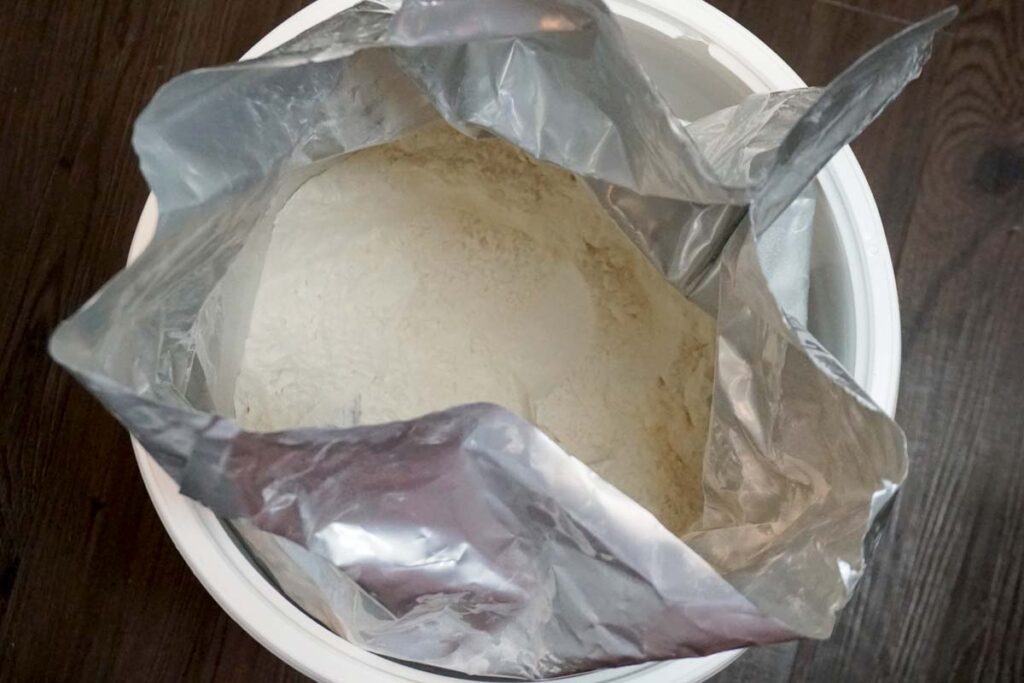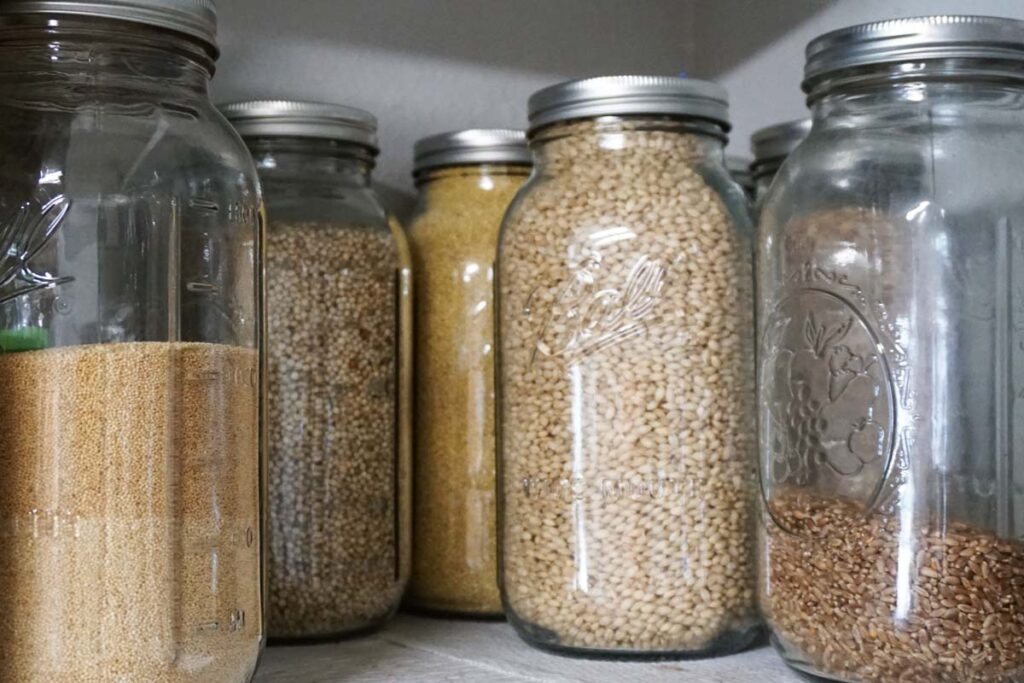It’s important to properly store your grains, whether whole or milled into a flour.
I’ve shared how I lost whole grain berries to pantry moths, but whole grain flour more easily spoils at room temperature. As you create a system at your home to ensure you’re using fresh ingredients, this can be a helpful reference chart.
| Grain | Whole grain berries storage life | Flour at room-temperature storage life | Flour in the freezer storage life |
|---|---|---|---|
| All-purpose flour (regular, enriched, bleached, and non-bleached) | – | 1 year | 1-2 years |
| Amaranth | 2-3 years (up to indefinitely*) | 3-6 months | 1 year |
| Barley | 6-8 years (up to indefinitely*) | 2-3 months | 1 year |
| Buckwheat | 2-3 years (up to indefinitely*) | 3-6 months | 1 year |
| Bulgur wheat | 1-2 years (up to indefinitely*) | 3-6 months | 1 year |
| Corn | 1-2 years (up to indefinitely*) | 6-12 months | 1 year |
| Durum wheat | 6-8 years (up to indefinitely*) | 2-3 months | 1 year |
| Einkorn | 2-3 years (up to indefinitely*) | 3-6 months | 1 year |
| Emmer (Farro) | 2-3 years (up to indefinitely*) | 3-6 months | 1 year |
| Freekeh | 2-3 years (up to indefinitely*) | 3-6 months | 1 year |
| Kamut | 6-8 years (up to indefinitely*) | 2-3 months | 1 year |
| Millet | 2-3 years (up to indefinitely*) | 3-6 months | 1 year |
| Oats | 2-3 years (up to indefinitely*) | 6-12 months | 1 year |
| Quinoa | 2-3 years (up to indefinitely*) | 3-6 months | 1 year |
| Red wheat | 6-8 years (up to indefinitely*) | 2-3 months | 1 year |
| Rice | 6-months for brown rice Indefinite for white rice | 6-12 months | 1 year |
| Rye | 6-8 years (up to indefinitely*) | 1-2 months | 6 months |
| Sorghum | 2-3 years (up to indefinitely*) | 3-6 months | 1 year |
| Spelt | 6-8 years (up to indefinitely*) | 2-3 months | 1 year |
| Teff | 2-3 years (up to indefinitely*) | 3-6 months | 1 year |
| Triticale | 6-8 years (up to indefinitely*) | 2-3 months | 1 year |
| White wheat | 6-8 years (up to indefinitely*) | 2-3 months | 1 year |
Note that these storage life estimates are general guidelines and can vary depending on storage conditions, packaging, and other factors. It’s always a good idea to check for signs of spoilage, such as off smells or insect infestation, before using any stored grains.
Want to extend the life of your whole grains or flours?
You can store grains in mylar bags with oxygen absorbers, then putting the sealed bags in food-safe buckets. This is a modern take on Egyptian granaries is the best way to keep your grains fresh.
This works for both whole, un-milled grains and flours (although all-purpose flour is the only one I do it with as it has a much longer shelf-life since most of the bran and germ have been removed).
If you do this to your whole grains, they can last decades if stored in a cool, dry area and kept in their food-safe buckets.









